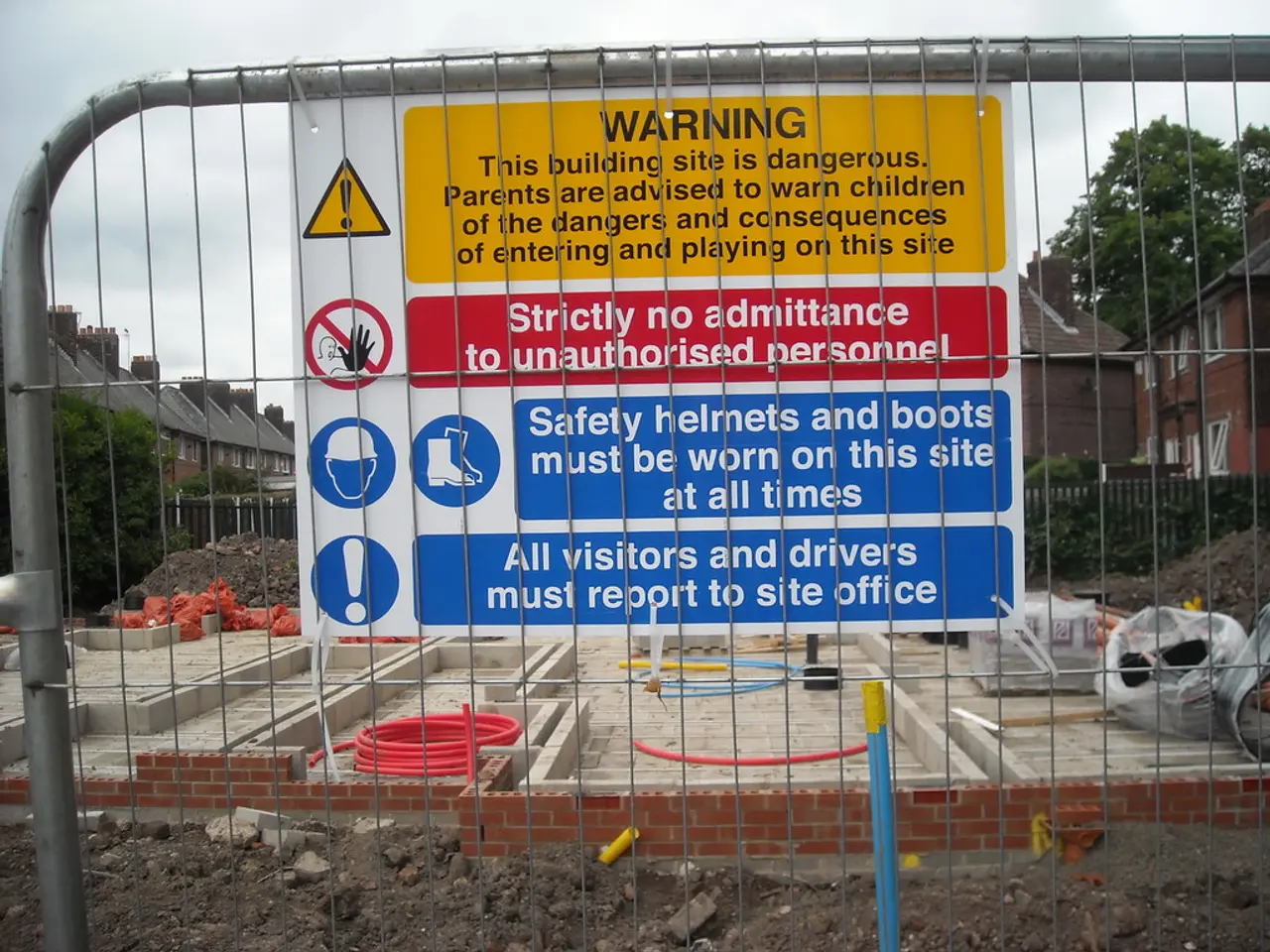Prime Minister in an acting capacity supports assertion by SRT over contested property.
In the heart of Buri Ram, a historic region in Thailand, a long-standing dispute over the land at Khao Kradong continues to unfold. The State Railway of Thailand (SRT) claims ownership of the 5,083 rai of land, a claim backed by a royal decree issued during the reign of King Rama VI [1][2]. However, this assertion is met with opposition from local residents and their representatives.
Interior Minister Phumtham Wechayachai, also acting prime minister, has confirmed the SRT's ownership after a review of the case. The government plans to revoke about 995 land titles held by individuals and entities, including the prominent Chidchob family, who operate key sports and hotel businesses on the site [2][3].
Chanin Kanhirun, a legal representative for those affected by the disputed land, challenges the SRT’s claims. He argues that the SRT's evidence relies on limited court rulings and questionable documents. According to Chanin, no royal decree or legal act granted this land to the SRT, and the map used by the SRT, intended for temporary rock transport, lacks legal validity [4].
Minister Phumtham insists that any claim contradicting royal intent must be carefully examined. He acknowledges that minor boundary disputes might remain, but he suggests that if following the law is wrong, then so be it [6]. He denies allegations that the royal decree lacked proper mapping and states that the map supporting the SRT's claim has always existed [7].
The current claimants of the disputed land at Khao Kradong are primarily corporate entities, with few local residents involved in the ongoing claims [8]. This complex situation has raised questions about the validity of SRT's exclusive ownership, as many local residents had registered rights prior to the SRT’s claim [5].
As the dispute continues, both sides find themselves embroiled in a legal battle. While the official legal position recognizes the land as state-owned by the SRT, there are ongoing legal and factual disputes raised by local residents and their representatives, challenging the basis of that ownership and the revocation of their land titles [1][2][4][5].
In response to criticism, Minister Phumtham maintains that the royal decree clearly establishes SRT ownership. He also states that if people have acquired land legally, the justice system will handle it [9]. Chanin, however, continues to express concerns about the SRT's claims and the legitimacy of the supporting documents [10].
The disputed land at Khao Kradong remains a subject of ongoing controversy between the State Railway of Thailand and those affected by the land. Private companies threatening lawsuits seeking substantial compensation should not expect the state to pay for damages if they have been trespassing on SRT land, according to Minister Phumtham [11]. The future of this contested land and the lives of those affected by it hang in the balance, as the legal process unfolds.
- The ongoing dispute over the land at Khao Kradong in Buri Ram, Thailand, involves not only local residents but also policy-and-legislation, as the government plans to revoke land titles based on a review and interpretation of royal decrees and laws.
- The controversy surrounding the land at Khao Kradong is deeply rooted in politics, as the State Railway of Thailand's claim to the land is met with opposition from local residents and their representatives, leading to a complex legal battle and general news coverage.








